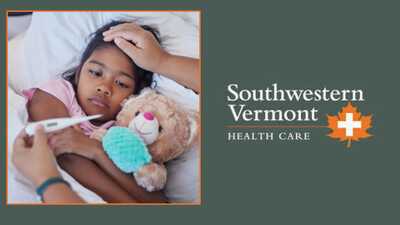
Figuring Out Fevers in Kids
 |
Few things make a parent feel more helpless than when their child has a fever. The good news is most fevers are harmless. In fact, they’re a signal that your child’s immune system is working to fight infection. Nonetheless, it can be distressing when your child is unwell. There are so many questions: How high a fever is too high? What medication—if any—should I give them? When should I call a doctor?
Before we dive into those questions, let’s explore what a fever is and how to recognize it.
To begin with, a fever is not an illness. Rather, it’s a symptom of an illness. According to the American Academy of Pediatrics (AAP), a body temperature at or above 100.4F in children qualifies as a fever. Besides temperature, other common signs of fever-inducing illnesses include: being unusually tired or fussy; feeling warm to the touch; red cheeks; sweating, shivering, and chills; loss of appetite; and glassy eyes.
While your first instinct may be to reach for medication, it’s important to note that medication should only be given if your child is uncomfortable. If your child is over three months old and is alert and smiling, participating in play, isn’t flush with color, and drinking well, you should hold off on medicating.
If you do decide to medicate, use the correct dose of child-specific acetaminophen or ibuprofen. If your child is under two years of age and you do not have dosage information available, contact your pediatrician or pharmacist.
Other steps you can take to help manage a fever include:
- Provide lots of fluids. Fever will cause children to lose fluids more quickly than when they are well, so offer plenty of fluids including water, diluted juices, or electrolyte solutions (Pedialyte) to avoid dehydration (if over 6 months of age only).
- Don’t overdress your child. Dress them in a single layer of light, breathable clothing and provide one light blanket or a sheet if they experience chills.
- Keep them cool. If your child is warm, use a cool compress on their head and keep their room at a normal, comfortable temperature.
- Medicate for discomfort. Medication should only be given if your child is uncomfortable. Use child-specific acetaminophen or ibuprofen, taking care to dose correctly. If your child is under two years of age, contact your pediatrician or pharmacist for the correct dose if you do not have it available.
- Do not give your child more than one medication containing acetaminophen, such as some cough and cold medicines, and avoid giving aspirin to children or teenagers. No cough or cold medicines are recommended for under 6 years old.
Fortunately, most fevers and illnesses pass on their own without the need for medical intervention. However, if your child shows any of the following signs along with a fever, you should contact their doctor:
- appears unusually drowsy or fussy or continues to "act sick" once the fever is brought down
- child seems to be getting worse
- has a stiff neck, severe headache, severe sore throat, severe ear pain, or repeated vomiting or diarrhea
- an unexplained rash
- pain while peeing
- signs of dehydration, such as dry mouth, a sunken soft spot
- is unable to take in fluids
- has a seizure
- is under 3 months and has a temperature of 100.4F or higher
Other reasons to reach out for medical advice include:
- a fever that lasts for more than 24-48 hours in a child younger than 2 years.
- a fever that lasts for more than 3 days (72 hours) in a child of any age.
Of course, you know your child best. If they are acting ill in ways that concern you—even without a fever—don’t hesitate to contact their doctor for advice.
Meghan Gunn, MD, FAAP, is board-certified in Pediatrics and is the Medical Director of SVMC Pediatrics.
Tags: svhc, SVMC,






















